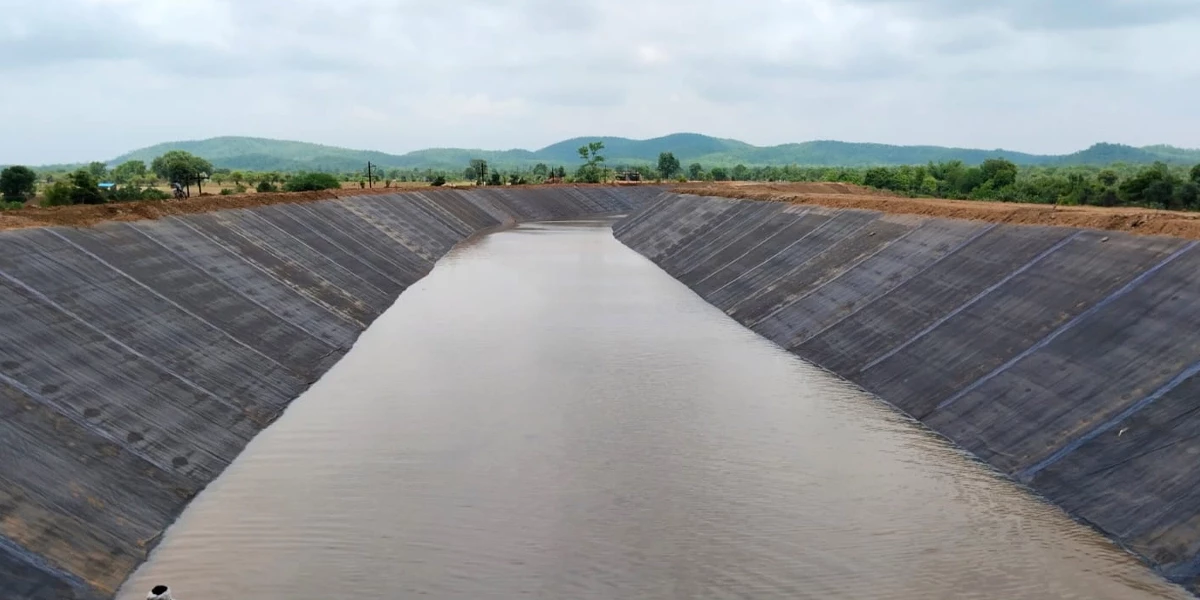

Geomembranes, versatile synthetic materials, are changing the way, how we approach water management and environmental protection. These high-performance liners are used in a wide range of applications, including Geomembranes, which are used in various applications such as lining landfills, hazardous waste sites, and wastewater treatment facilities to prevent the migration of contaminants into the environment. They are also used to create water reservoirs, irrigation canals, and aquaculture ponds to conserve water resources. Additionally, geo membranes are used to waterproof tunnels, basements, and underground structures, protecting them from water infiltration. In the construction industry, geomembranes are used for roofing and waterproofing, safeguarding buildings from water damage.
As technology advances, so does the innovation of geomembranes, opening up new possibilities for sustainable water management. Geomembranes are now being developed with enhanced properties, such as increased strength, durability, and resistance to environmental factors. Additionally, innovative manufacturing techniques and the incorporation of advanced materials enable the creation of more efficient and effective geomembrane solutions.
The evolution of geomembrane technology has been driven by a growing need for durable, flexible, and environmentally friendly solutions to water-related challenges. Early geomembranes were primarily used for simple applications like landfill liners. However, advancements in material science and manufacturing techniques have led to the development of more sophisticated geomembranes installation with enhanced properties:
Using high-performance polymers like HDPE (High-Density Polyethylene) and LLDPE (Linear Low-Density Polyethylene) has significantly improved geomembrane strength, durability, and chemical resistance.
Innovative manufacturing processes, such as extrusion and calendaring, allow for the production of geomembranes with precise thicknesses, uniform properties, and enhanced performance.
Incorporating additives like antioxidants, UV stabilisers, and flame retardants further enhances the durability and safety of geomembranes.
Several emerging trends are shaping the future of geomembrane technology:
Integrating sensors and IoT technology into geomembranes enables real-time monitoring of environmental conditions, such as temperature, humidity, and pressure. This data can be used to optimise maintenance schedules, detect potential issues, and improve overall system performance.
Research is underway to develop self-healing geomembranes that can automatically repair minor punctures or tears, extending their lifespan and reducing maintenance costs.
Biodegradable geomembranes offer an environmentally friendly solution for temporary applications. These materials can decompose naturally over time, minimising their environmental impact.
YOOIL Envirotech is a renowned global leader in producing and supplying high-quality geomembranes. Collaborating with YOOIL Envirotech presents a unique opportunity for your project to harness the latest advancements in bituminous geo membrane technology, ensuring you have access to the highest quality products available in the market. Geomembranes play a crucial role in environmental protection, serving as barriers that prevent the contamination of soil and water resources. With a strong commitment to innovation and sustainability, YOOIL Envirotech offers a wide range of geomembrane solutions for various applications, including:
Lining landfills, hazardous waste sites, and wastewater treatment facilities to prevent the migration of contaminants into the environment.
Creating water reservoirs, irrigation canals, and aquaculture ponds to conserve water resources and optimise water management.
Waterproof tunnels, basements, and underground structures to protect them from water damage and ensure long-term stability.
Protecting buildings from water damage and ensuring their durability through effective waterproofing solutions.
Creating impermeable barriers to prevent leachate and gas emissions from landfills, protecting the environment and public health.
Lining tailings ponds and waste storage areas to prevent contamination of soil and water resources.
Geomembranes are used for various civil engineering projects, such as road construction, embankment stabilisation, and erosion control.
They are vital components in various applications, including landfill liners, water reservoirs, and mining operations, where they help manage and contain hazardous materials, promoting sustainable resource management. As we move forward in an era of rapid technological progress, we can expect to see significant innovations in geomembrane materials and their applications. These advancements may include developing more durable, flexible, and environmentally friendly materials that can withstand extreme conditions while minimising ecological impact. By embracing these cutting-edge technologies, we can enhance the effectiveness of geomembranes in various projects, ultimately contributing to a healthier planet.
Adopting these innovations cannot be overstated, as they are essential for creating a sustainable future for future generations. By prioritising environmentally responsible practices and utilising state-of-the-art geomembrane solutions, we can preserve and protect our natural resources for future use. We invite you to join forces with YOOIL Envirotech to explore the future of geomembrane technology. Together, we can push the boundaries of what is possible, driving forward initiatives that meet today's demands and safeguard tomorrow's environment. Let us collaborate to implement these advancements in your projects, paving the way for a more sustainable and resilient future.
